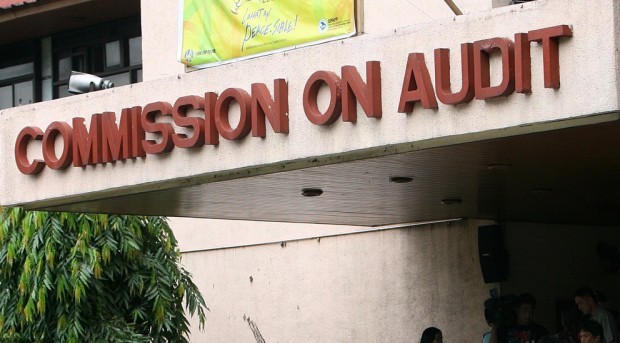Amid COVID-19 restrictions, COA looking to modernize auditing process

The Commission on Audit (File photo from the Philippine Daily Inquirer)
MANILA, Philippines — As the COVID-19 pandemic shifted how the world operates — moving online to work, hold classes, and even law enforcement — questions rose as to how the Commission on Audit (COA) will do its job.
Being a constitutional commission tasked to audit government spending and projects, COA does its work by moving around offices, doing studies and investigations, and going to project sites. But with the pandemic, such activities may be hard to do.
However, it does not mean that COA’s mandate would end: according to COA Chairperson Michael Aguinaldo, they are currently working towards modernizing their audit program, while at the same time monitoring money and projects intended for the COVID-19 response like government funds, reallocated budget, and local and foreign donations.
During an online webinar initiated by the Stratbase Albert del Rosario Institute, Aguinaldo revealed that they have created a task force that would focus on audit modernization. As of now, it is still under an initial testing phase.
“But, as the saying goes, ‘Every dark cloud has a silver lining. You just need to look for it’,” he said on Thursday. “The audit environment has opened opportunities for more creative ways of performing our audit function.”
“The COA developed an Audit Modernization Program to enhance its resilience in times of crises or emergency, by optimizing the use of science, technology, and innovation. A Task Force for Audit Modernization has been created and as a starter, is now testing with a government financial institution, the use of artificial intelligence to detect statistical anomalies in transactions,” he added.
Under Project Machine Intelligence, Knowledge-based Audit, and Experience Learning — or Project MIKA-EL — an artificial intelligence (AI) is seen to assist state auditors by going through massive government records to scan documents faster, thereby helping COA officers segregate clean documents from anomalous ones.
This would then give state auditors a hint about the what projects may have issues involving fraud.
“It will also build capacity for remote audit; as well as, shift to a paperless submission of documents to the auditor,” Aguinaldo said. “The MIKA-EL website can be accessed at https://mika-el.coa.gov.ph/.”
As the auditing body which has been a primary source of documents for a lot of graft cases, COA’s observation is not necessarily met well by government offices and officials, including the highest official of the land.
Last January 2019, President Rodrigo Duterte drew flak for saying that they should just kidnap and torture COA officials for nitpicking on government projects which he claimed make things complicated and difficult.
But as of now, COA assures the public that they are monitoring COVID-19 funding by following the money trail despite ongoing restrictions.
“The COA has re-directed its audit efforts to follow the new directions set by its auditees. The audits are anchored on the theme “follow the money trail” – from the source of funds, to implementing agencies, to recipients; then turning full circle to reconcile the accounts,” Aguinaldo said.
“Along this line, the COA’s Supervising Auditor at the DBM will provide a list of COVID-19-related electronic Budget (eBudget) allotment releases issued by the DBM, to the Auditors of Implementing Agencies. Then, Auditors of source agencies and implementing agencies will coordinate and reconcile accounts,” he added.
Concerns have been raised over the administration’s possible reliance on loans as President Duterte has repeatedly said that the country has run out of funds to use — with major COVID-19 projects like the planned purchase of vaccines for 60 million people coming from loans worth P73.2 billion.
As of November 21, a Philippine Daily Inquirer report showed that the government’s war chest in terms of fighting the health crisis has already reached US$21.65 billion, or around P1.04 trillion.
However, the country’s debt is expected to balloon to P13.7 trillion before Duterte steps down from office.